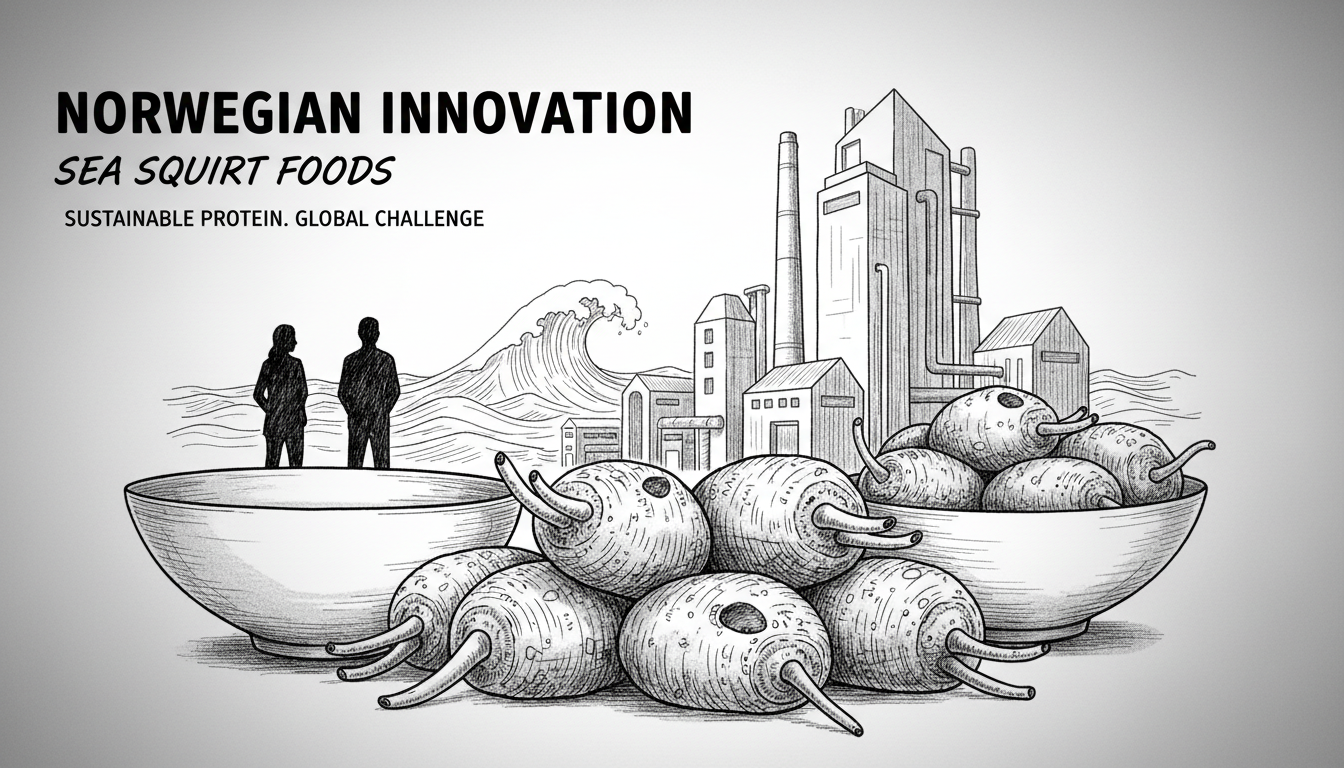Norwegian food entrepreneurs have developed a surprising new protein source from an unlikely marine creature. They are creating meat-like products from sea squirts, also known as tunicates, marking the world's first industrial-scale production of food from these filter-feeding animals.
The operation in Hustadvika on Norway's northwestern coast represents a significant shift in aquaculture. Project manager Magnus Petersen explains their approach. "These animals have been growing since May without any feed, chemicals, or additives. They simply filter seawater and eat what they live on," he said in a statement.
Sea squirts grow on ropes suspended in the fjord, requiring minimal human intervention. The creatures attach themselves to surfaces early in life and remain stationary, filtering plankton from the water. This passive farming method creates what researchers describe as one of the most sustainable food production systems available.
Environmental benefits appear substantial. The company claims their sea squirt meat has just one percent of the carbon footprint of conventional beef. Marine biologist Trond Roger Oskars compares the cultivation to growing vegetables in terms of environmental impact. "Sea squirts eat algae and dead particles low on the food chain. You get more energy out compared to other production methods with less effort," Oskars noted.
Norway's extensive coastline offers significant potential for expanding such marine farming. Researcher Arne Duinker from the Institute of Marine Research sees enormous opportunity. "Norway has one of the world's longest coastlines. If we facilitate this type of industry in the coming decade, we could achieve large volumes that help meet food needs when we scale down oil production," Duinker explained.
The company currently processes one ton of raw material per hour at their land-based factory. Their initial product, a ready-made lasagna containing the sea squirt meat substitute, is already available in Norwegian supermarkets including Rema 1000. More products are in development, including Asian dishes and chili con carne.
Consumer acceptance remains the primary challenge. Vigdis Aasprong Olsen, a shopper encountering the product, expressed typical hesitation. "It looks perfectly fine. I'm not afraid of food, but I think I'll try it when I'm alone first," she said.
Food researcher Annechen Bahr Bugge sees mixed prospects for consumer adoption. "Norwegians are generally quite open since most people want to eat more fish and seafood," she observed. Yet she questions whether the meat substitute format will succeed, noting that other alternatives have disappeared from stores while fish sausage failed to catch on.
The company holds permits for one marine facility in Hustadvika and has applied for additional sites elsewhere in Norway. They envision creating hundreds of local jobs within few years. This development comes as land-based food production reaches its limits while global population continues growing.
Sea squirt cultivation represents part of a broader shift toward blue foods including mussels, oysters, and seaweed. These marine species offer sustainable alternatives to traditional agriculture and capture fisheries. Norway's investment in this emerging sector positions the country at the forefront of sustainable food innovation.
The factory can produce various products from the raw material, focusing initially on ready-made meals to ease consumer adoption. "For those who dare to try, the difference is almost unnoticeable," Petersen said about their lasagna product. The company also aims to supply hotels, restaurants, and institutional kitchens with the raw ingredient.

